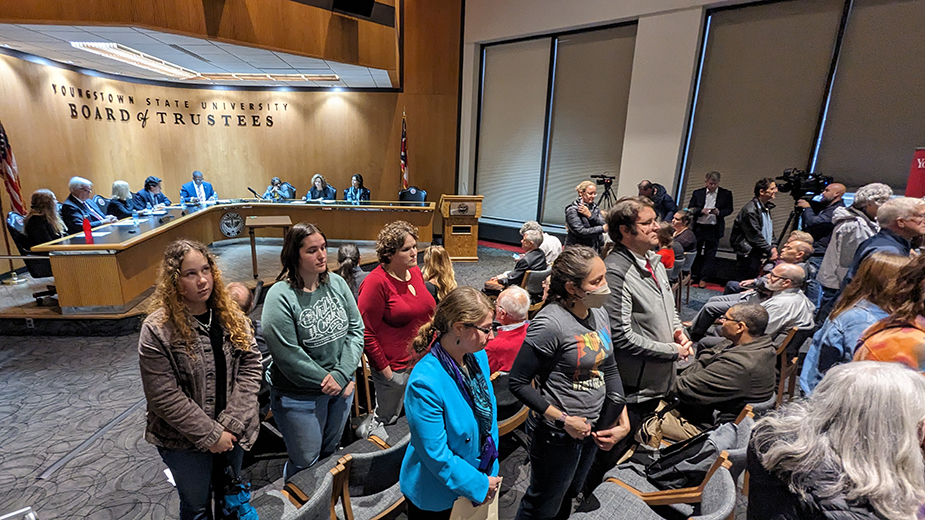YOUNGSTOWN, Ohio – There is no disputing that the Youngstown State University Board of Trustees made a risky and divisive decision when it voted 8 to 1 to offer the job of university president to U.S. Rep. Bill Johnson.
In so doing, they opted for a sharply partisan politician, with a long record of far-right votes and harsh rhetoric. At a time when our country is deeply polarized, why would trustees select a polarizing figure to lead the university at a time when tough decisions must be made regarding its urgent need to right-size.
Johnson is not known for being a conciliator.
Certainly, he possesses strong leadership qualities, demonstrated by his military service, history as a businessman and his tenure in Congress. Had his selection Nov. 16 resulted from an open process, the uproar might not be so loud and so widespread.
A letter and petition signed by five YSU alumni – including a Rhodes Scholar – that criticized the decision and the process was posted Nov. 18 on social media. It rapidly galvanized opposition by students, alumni, instructors, donors and the greater YSU community. Within days, more than 2,300 individuals had signed the petition. Many said they would discontinue donations to YSU and resign their alumni association memberships.
Then came the Nov. 28 letter from the Youngstown State University Foundation, which conducts fundraising for YSU, that stated its preference for a “more inclusive search.” The letter cited communications from donors who are reluctant to provide support to YSU as it moves forward.
One of those donors is businessman Bruce Zoldan, whose family donated $5 million in January for construction of a new student center. “I’ve not talked to anyone who is happy about it,” he told The Business Journal Nov. 28.

We confirmed Nov. 29 that another prominent local businessman, Ed Muransky, has resigned as chairman of the YSU Foundation board. The Muransky family also pulled its support from the YSU Pipino Performing Arts Series that it established and funded 10 years ago.
In response to the foundation’s letter, trustee Chairman Michael Peterson released his own letter that outlined all the steps taken in the presidential selection process.
The search firm, WittKeifer, was steadfast in recommending that YSU conduct a confidential search “to attract the most qualified candidates,”
Peterson said.
The search “was conducted with the utmost integrity. … WittKiefer indicated that YSU’s process was one of the most open confidential searches they have seen,” he emphasized.
That may be true, but the confidential search process stands in contrast with previous presidential selections.
As journalists, we advocate for transparency and access to public records. And we have an obligation to report conflicts of interests.
Not unlike the 2020 election conspiracy theories that metastasized distrust in government and institutions, how the trustees went about seeking a new president has led many to believe the outcome was predetermined.
Johnson buttressed this skepticism when he stated Nov. 16 that he was approached to apply for the position.
Although Johnson pledges, as YSU president, to leave his politics “at home,” he declared at the Nov. 21 news conference following his hiring, “We’re here to educate people, not indoctrinate …” As a member of Congress, Johnson has criticized so-called wokeness in higher education and in the military.
We trust that he will get better at leaving his politics “at home.”
Events have moved swiftly over the past few weeks and YSU trustees are scheduled to meet Dec. 7.
YSU is the shining star in our community and we cannot afford for YSU to lose its luster. Should Johnson and the trustees stick with their decision, their first task must be to restore trust.
It won’t be easy.
